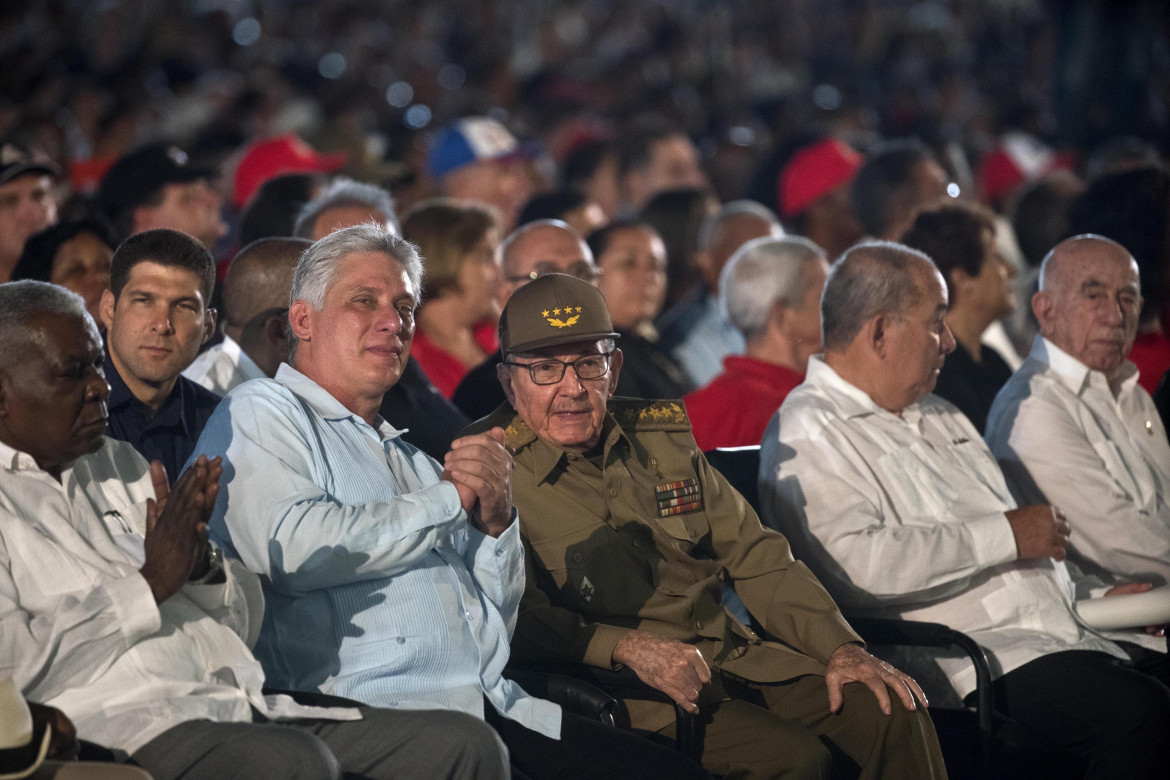Analysis
With Díaz-Canel’s installment, Cuba begins an era of ‘collective leadership’
Raúl made it clear that the strategy of the party, and therefore of the government, remains the defense of socialism. The new leader of the party-government-state has been carefully chosen to balance the different ‘souls’ of the Communist Party.

Miguel Díaz-Canel is the new face of power in Cuba. As expected, he was elected first secretary of the Cuban Communist Party on Monday, a position that he will hold at the same time as the presidency of the Republic.
Thus, the transition of the government of the island to the generation born after the victory of Fidel’s Revolution in 1959 is complete. With Raúl gone, there is no representative of the Castro family at the top of the CP, the sole party and “governing force” of the country. The other “historical” leaders, Machado Ventura, Commander Valdés, General Cintra Frías, all over 80 years old, are also leaving the Political Bureau and retiring. The only representative left of the Sierra Maestra fighters is General López Miera, Minister of the Armed Forces, appointed on the eve of the Eighth Congress.
The new rule, pushed by Raúl, is thus confirmed: there is a limit of maximum 60 years of age to be part of the Central Committee of the CCP and 70 for the Political Bureau.
The post of second secretary general of the CCP, which used to be held by Machado Ventura, considered by commentators as the heavyweight of the party’s orthodox group, was no longer included in the hierarchy. As a result, Díaz-Canel will not have a counterweight from the “historical” section of the party. But there is little doubt that the new leader of the party-government-state has been carefully chosen to balance the different “souls” of the CP. “Díaz-Canel is not the result of improvisation, but of a careful selection of a young revolutionary who met all the conditions to be promoted to higher office,” as the former president made clear in his own speech to Congress.
The axis that establishes the unity of the party — which in turn “represents the unity of the Cuban people” — revolves around personalities linked to Raúl Castro, and the pragmatic and collegial government approach that the former first secretary imposed, differentiating himself from his older brother, the lider máximo of the island.
The renewal of the political leadership comes at a time of severe economic crisis in the country, made even more acute by the Covid-19 pandemic (on Monday, there were 1,060 newly infected).
For this reason, the 300 delegates present at the Congress (held behind closed doors) approved the documents that spoke of the need for the development of the country’s economy as the main objective of the party, along with “ideological solidity.”
On this issue, Raúl made it clear that the strategy of the party, and therefore of the government, remains the defense of socialism, with the predominance of state industry, the control of foreign trade and the development of a private sector only as “complementary” to the state’s.
The situation currently experienced by the Cubans de a pie, i.e. the ordinary citizens, is at the limit of endurance, given the scarcity of basic necessities. “Giving a boost to domestic production to replace imports, as well as guarantees to obtain more foreign investment and a solid and convertible currency are the primary objectives of the government and the party,” argues the economist Omar Everleny. These are the objectives of the Tarea ordenamiento for the economy, in effect since January 1. But it is not having the desired effects. Protecting the fixed exchange rate of the currency, the peso, has a very marked social cost.
Probably for this reason, Marino Murillo, the former czar of economic reforms, has left the Political Bureau. At the same time, the weight of the military has increased. The Political Bureau welcomed Luis Alberto Rodríguez López-Calleja, president of the powerful military consortium Gaesa, which controls more than 60% of the island’s economy.
In his speech, Raúl Castro addressed (without naming him) the President of the United States, proposing that relations based on respect for sovereignty and equality should resume between the two countries. Biden and his chief of diplomacy, Blinken, are still saying that “Cuba is not a political priority” for the White House. Which means that they are maintaining the embargo and the 240 sanctions and measures wanted by former President Trump, with the clear objective of suffocating the Cuban economy and provoking “a social revolt” on the island.
One of the reasons given by the Helms-Burton Act, the legal foundation of the embargo, is the need to end the rule of Castro in Cuba. If, as he claimed during the presidential campaign, Biden really wants to change course from Trump, both with respect to Cuba and Latin America, he now has a valid reason to do so.
Originally published at https://ilmanifesto.it/cuba-inizia-lera-diaz-canel-per-la-guida-collettiva-del-pc/ on 2021-04-20
